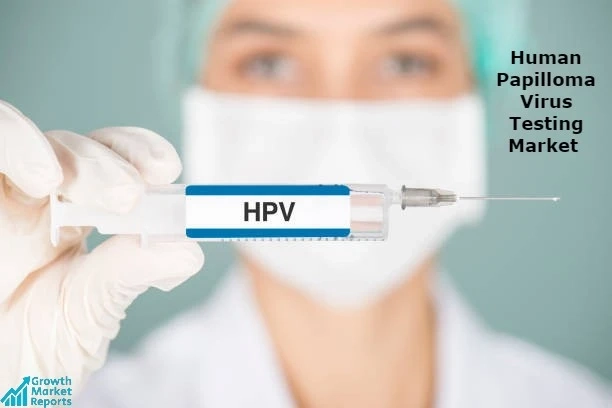The global human papilloma virus testing market size is estimated to register a considerable CAGR during the forecast period, 2021–2028. The growth of the market is attributed to the increasing cases of cervical cancer world-wide.
The human papillomavirus (HPV) test helps to identify human papillomavirus present in the cells, which can further develop the abnormal cervical cells or cervical cancer, and genital warts. Routine usage of the HPV test under the age of 30 years is not recommended by specialists, as it is not very helpful. HPV is a type of infection majorly occurred through sexually transmitted and very common in young people. However, HPV infections usually get easily recovered by itself within a year or two. As per a World Health Organization report, cervical cancer is the fourth most common cancer among women. The report stated that the number of the disease cases were around 570,000 in 2018, representing 6.6% of all female cancers and the mortality rate is 90% caused by cervical cancer in underdeveloped countries.
With the increasing cases of COVID-19 all over the world in 2020, patients’ visit for numerous elective medical procedures such as cancer screening and monitoring were found subsided. One key reason for the decreasing in cancer screening adoption was due to urgent shift of pharmaceutical companies to prioritize more on essential requirements and tackle the COVID-19 pandemic.
Market Trends, Drivers, Restraints, and Opportunities
High mortality rate due to HPV infection and rising cases especially in developing countries are key factors that are anticipated to boost the growth of the market in the coming years.Shortcoming of primary screening tests such as false or negative outcome, and less sensitivity for the detection of the virus is expected to upsurge the market.Increasing burden of cervical cancer globally which is more commonly found in females is another factor that fuel the market growth during the forecast period.Constantly changing in rules & regulations related to cervical cancer screening and HPV vaccination are major obstacles affecting the growth of the HPV testing market.Less-skilled healthcare workers operating the diagnostic devices is one of the primary reasons that can hamper the market growth.Growing awareness regarding the link between HPV and cervical cancer along with the increasing demand for accurate diagnostic testing is also projected to grow the market substantially.Key Players
Biomedical DiagnosticsAbbottbioMerieuxCeMines, Inc.CanAG DiagnosticsSiemens HealthcareBio-RadEpigenomicsFujirebioGuided Therapeutics Inc.IpsogenGen-ProbeJ&J DiagnosticsHologicPolartechnicsQiagenRocheRadient PharmaceuticalsOncoLabSequenomTargeted Diagnostics & Therapeutics, Inc.Competitive Landscape
Some of the major players competing in the market are Biomedical Diagnostics; Abbott; bioMerieux; CeMines, Inc; CanAG Diagnostics; Siemens Healthcare; Bio-Rad; Epigenomics; Fujirebio; Guided Therapeutics Inc; Ipsogen; Gen-Probe; J&J Diagnostics; Hologic; Polartechnics; Qiagen; Roche; Radient Pharmaceuticals; OncoLab; Sequenom; and Targeted Diagnostics & Therapeutics, Inc.
These key players are mainly focusing on organic & inorganic strategies such as merger & acquisition, approvals for products and licenses, agreements, partnerships, collaborations, and regional expansions to sustain their revenue share in the market.
To Get a New Sample Request: https://growthmarketreports.com/request-sample/2007
Contact Us
Growth Market ReportsPhone: +1 909 414 1393Email: sales@growthmarketreports.com Web: https://growthmarketreports.com


